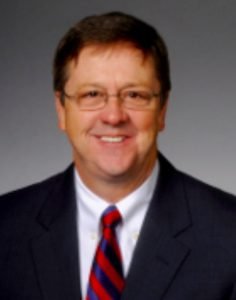State Capital Week In Review From Senator Larry Teague 5/5/17
By Staff, 05/6/17 3:24 PM
LITTLE ROCK – The legislature completed a three-day special session after approving the governor’s proposal to limit eligibility in the Arkansas Works health coverage program.
Senate Bill 3 would reduce income limits for eligibility in Arkansas Works, which now provides health coverage to about 320,000 Arkansas residents whose incomes are beneath 138 percent of the federal poverty level. The governor said that he was confident federal officials would approve the new income threshold in SB 3, which would reduce eligibility to people with incomes less than 100 percent of the poverty level and which would remove about 60,000 Arkansans from Arkansas Works.
Senator Larry Teague of Nashville was among nine senators who voted against the bill. Opponents of SB 3 included the most conservative members of both political parties, and included many representatives of rural areas.
“The bill had provisions I agree with, such as the requirement that a recipient get a job or take job training in order to qualify for benefits,” Teague said. “In that respect it brought Medicaid expansion in line with existing requirements for becoming eligible for food stamps and welfare.”
“Another provision I like promotes more personal responsibility on the part of Medicaid recipients, because it requires them to pay two percent of their premiums, up to $19 a month,” Teague said. “Although the monthly payments are minimal, for most people they’re an incentive to adopt a healthier lifestyle.”
“However, there are a lot of moving parts in the bill, and ultimately the financial threat to rural hospitals was too great to ignore because of the 60,000 people who will be taken off Arkansas Works,” Teague said. “They may eventually qualify for a different type of health insurance through the federal exchange, but in our experience we can be fairly certain that a large percentage of them will not have any health insurance for an extended period of time.”
“Their lack of health insurance doesn’t change the fact that hospitals have a legal and moral obligation to treat sick people who show up at their door. We know what happens because we lived through it for decades. When people without money or insurance rely on hospital emergency rooms as their primary care provider, hospitals have to write off millions of dollars in unreimbursed care. For small hospitals in rural areas that can begin a financial death spiral. It certainly has happened that way in the past, before we implemented Arkansas Works,” Teague said.
“Apart from the loss of medical care, which can be life-threatening to the elderly and to people with chronic conditions, losing a hospital has negative economic effects throughout the entire community,” Teague said.
“A town that loses its hospital can give up trying to recruit new industry, because there is no corporate executive who will locate a plant there. And if that town has an existing industry, like a poultry processing plant, its management will not expand because of the lack of a hospital and the lack of medical coverage that entails,” Teague said. “Any expansion will take place at one of its plants in other states.”
“I wish that the sponsors of SB 3 had broken the bill down into its separate parts so that I could have voted for the parts I like, but that was their strategic decision to make. In the end, I had to vote against the bill because I truly believe it will harm rural hospitals and rural communities,” Teague said.
Teague is Senate co-chairman of the Joint Budget Committee. He represents Senate District 10, which includes Howard, Montgomery, Pike and Polk Counties and parts of Clark, Hempstead, Nevada and Sevier Counties. He has been in the Senate since the 2009 legislative session. Before that he served six years in the House of Representatives.



